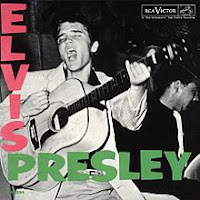 Thirty two years ago today (that's 1979, for you home-schoolers), The Clash released London Calling. There's a reason why that matters, and if we're all very lucky, I might get to it.
Thirty two years ago today (that's 1979, for you home-schoolers), The Clash released London Calling. There's a reason why that matters, and if we're all very lucky, I might get to it.I was a dilettante punk fan in high school. I'll admit it: I was never a true punk, but I supported the idea.
Of course, as I grew older, I realized that "punk" was pretty much a metaphorical term for any band who really didn't know how to play their instruments, and were just screaming as loud and as fast as they could.
I owned a copy of Never Mind the Bollocks; I loved the Ramones (although I didn't see Rock'n'Roll High School until a midnight showing in 1984, and I knew it sucked before I went in - I basically just saw it out of solidarity or some shit...); I never really liked Black Flag (before or after Henry Rollins - but I knew enough people who lived for that crap that I knew the difference). And I continue to worship every note played by Joe Jackson, despite his switch to pop/classical musical sensibilities.
Basically, I liked the idea of punk, but I also liked the ideas of rhythm, chord changes, harmony, playing in the same key, and all those other musical concepts that punk music disdained.
And that was why I liked the Clash.
Their first two albums, as far as I was concerned, were basic punk, and crap. But London Calling was done after they fired their manager (or, you know, disagreed with him for three years until they brought him back), and instead of continuing as another crap punk band, they started using socially relevant lyrics, they embraced ska, rockabilly and playing in the same key, and generally they became a rock band instead of an icon for a movement.
Personally, as albums go, I preferred Combat Rock over London Calling, but this was their seminal album (as in "for the first time, they shot spunk instead of blanks").
 Their album cover, widely accepted as one of the most iconic covers of all times, was basically a riff on Elvis' first album. (It was also a double album, but sold at the price of a single album, which was important to those of us buying records - yes, vinyl - off of our toy-store stocker paychecks...)
Their album cover, widely accepted as one of the most iconic covers of all times, was basically a riff on Elvis' first album. (It was also a double album, but sold at the price of a single album, which was important to those of us buying records - yes, vinyl - off of our toy-store stocker paychecks...)One of the hits off the album, "Train in Vain," was considered a "secret track" because they hadn't intended to include it on the album. Their first song to crack the American Top 40, they recorded it in one day, a few hours after they wrote it, and intended it as a free giveaway with the British rock magazine New Musical Express. But when that deal fell through, they stuck it on the album. Unfortunately, the album cover had already been printed and didn't list this song. Go figure.
My personal favorite from the album is the title song, a mid-tempo number in a minor key, with staccato guitar chords playing against Joe Strummer's harsh, almost apocalyptic lyrics referencing drugs, Three Mile Island, police brutality and the sad state of modern music.
So, when the dust settled, why was this album important?
Because it made punk accessible to the common man. It showed that even punk bands had talent. And it informed the world that the age of Phil Spector and Pat Boone was over, and the rowdy kids had moved in.
No comments:
Post a Comment